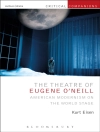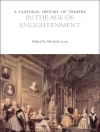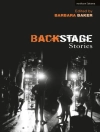This book analyses the diverse historical and geographical circumstances in which audiences have viewed American cinema. It looks at cinema audiences ranging from Manhattan nickelodeons to the modern suburban megaplex, and from provincial, small-town or rural America to the shanty towns of South Africa.
Going to the Movies studies the social and cultural history of movie audiences. Ranging broadly across historical time and geographical place, it analyses the role of movie theatres in local communities, the links between film and other entertainment media, non-theatrical exhibition and trends arising from the globalisation of audiences. There is an emphasis on movie-going outside the American North-East, and several chapters analyse the complexities of race and race formation in relation to cinema attendance.
विषयसूची
Introduction, Richard Maltby and Melvyn Stokes
Part 1: Studies of Local Cinema Exhibition
1. Race, Religion, and Rusticity: Relocating U. S. Film History, Robert C. Allen
2. Tri-racial Theaters in Robeson County, North Carolina (1896-1940), Christopher J. Mc Kenna
3. The White in the Race Movie Audience, Jane Gaines
4. Sundays in Norfolk: Toward a Protestant Utopia Through Film Exhibition in Norfolk, Virginia, 1910-1920, Terry Lindvall, C. S. Lewis
5. Patchwork Maps of Movie-Going, 1911-1913, Richard Abel, Robert Altman
6. Leshono habo’ bimuving piktshurs (Next year at the Moving Pictures): Cinema and social change in the Jewish immigrant community, Judith Thissen
7. ‘Four Hours of Hootin’ and Hollerin’: Moviegoing and Everyday Life Outside the Movie Palace, Jeffrey Klenotic
8. Cinema-going in the United States in the mid-1930s: A Study Based on the Variety Dataset, Mark Glancy and John Sedgwick
9. Race Houses, Jim Crow Roosts, and Lily White Palaces: desegregating the Motion Picture Theater, Thomas Doherty
Part II: Other Cinema: Alternatives to Theatrical Exhibition
10. The Reel of the Month Club: 16mm Projectors, Home Theaters and Film Libraries in the 19320s, Haidee Wasson
11. Early Art Cinema in the U.S.: Symon Gould and the Little Cinema Movement of the 1920s, Anne Morey
12. Free Talking Picture – Every Farmer is Welcome: Non-theatrical Film and Everyday Life in Rural America during the 1930s, Gregory A. Waller
13. Cinema’s Shadow: Reconsidering Non-Theatrical Exhibition, Barbara Klinger
Part III: Hollywood Movies in Broader Perspective: Audiences at Home and Abroad
14. Changing Images of Movie Audiences, Richard Butsch
15. ‘Healthy Films from America’: The emergence of a Catholic film mass movement in Belgium and the realm of Hollywood, 1928-1939, Daniel Biltereyst
16. The child audience and the ‘horrific’ film in 1930s Britain, Annette Kuhn
17. Hollywood in Vernacular: Translation and Cross-Cultural Reception of American Films in Turkey, Ahmet Gurata
18. Cowboy Modern: African Audiences, Hollywood Films, and Visions of the West, Charles Ambler
19. ‘Opening Everywhere’: Multiplexes and the Speed of Cinema Culture, Charles R. Acland
20. ‘Cinema Comes to Life at the Cornerhouse, Nottingham’: ‘American’ Exhibition, Local Politics and Global Culture in the Construction of the Urban Entertainment Centre, Mark Jancovich
लेखक के बारे में
Richard Maltby is Matthew Flinders Distinguished Professor of Screen Studies at Flinders University, South Australia. He moved to Flinders from the UK, where he established the Bill Douglas Centre for the History of Cinema and Popular Culture at the University of Exeter, before becoming Research Professor in Film Studies at Sheffield Hallam University.
His publications include Explorations in New Cinema History: Approaches and Case Studies (Wiley-Blackwell, 2011) and Cinema, Audiences and Modernity: New Perspectives on European Cinema History (Routledge, 2011), Hollywood Cinema (Wiley-Blackwell), Dreams for Sale: Popular Culture in the Twentieth Century (Harrap). ‘Film Europe’ and ‘Film America’: Cinema, Commerce and Cultural Exchange, 1925-1939, co-edited with Andrew Higson (UEP 1999), was winner of the prestigious Prix Jean Mitry for cinema history in 2000.He is a Series Editor of Exeter Studies in Film History.












